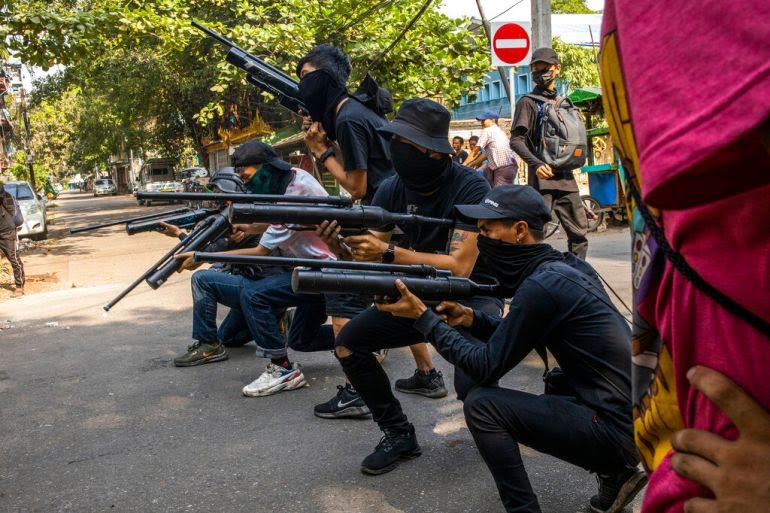On Wednesday, the UN Security Council issued its first-ever resolution on the situation in the troubled Southeast Asian nation, calling on the junta in Myanmar to release Aung San Suu Kyi.
Since the country has been ruled by the military since February 2021, the 15-member Council has been unable to come to a consensus on anything substantive regarding Myanmar for many years.
Since the army forcefully suppressed dissent and overthrew Suu Kyi’s government over two years ago, the 77-year-old has been imprisoned.
Suu Kyi and former president Win Myint are among the detainees who have been “immediately released,” according to Wednesday’s resolution, which “urges” the junta to do so.
Additionally, it calls for “all parties to respect human rights, fundamental freedoms, and the rule of law” and urges “an immediate end to all forms of violence.”
In a year in which divides have been exacerbated by Russia’s invasion of Ukraine, the adoption represented a moment of mostly unanimity inside the Council.
Before the vote, the spokesman for Secretary-General Antonio Guterres said, “Any chance for the Security Council to speak with one strong, united voice on any issue and especially on Myanmar would be much appreciated.”
With 12 votes, the text was approved. China and Russia, who are permanent members and might have used their vetoes to block the resolution, chose to abstain. India did not vote.
The resolution, according to US Secretary of State Antony Blinken, conveyed a “strong message” from the international community that the junta “must halt its atrocities across the country” and release captives.
Blinken urged stronger steps to restore democracy and said, “While we commend the approval of this resolution, the Council still has much more work to do to seek a just solution to the crisis.”
Diplomats claimed that the only Council resolution pertaining to Myanmar was the one the UN adopted in 1948 authorizing the nation’s membership in the international organization.
Due to vetoes from Beijing and Moscow, the Council was unable to pass a draft resolution on Myanmar in 2008.
Following the Rohingya crisis in which 700,000 people fled Myanmar for Bangladesh, Britain made another attempt in December 2018, but no vote was ever conducted.
In September, a draft of the resolution from this Wednesday was made available in Britain. UN observers claim that a number of adjustments were made to assure its passage.
According to reports, language emphasizing the Council’s resolve to exercise all of its authority in the event Myanmar disobeys the decision was removed.
A clause requiring the UN secretary-general to update the Council on the situation in Myanmar every 60 days also drew criticism from a number of members.
Instead, by March 15, 2023, the resolution requests a report by the secretary-general or his representative in consultation with ASEAN (ASEAN).
Since the coup put an end to the country’s brief democratic history, the Council had only made one statement in unison regarding Myanmar.
Although international observers judged the election was mainly free and fair, the military claimed significant voting fraud during the November 2020 election, which Suu Kyi’s National League for Democracy party easily won.
Suu Kyi, a Nobel laureate, was sentenced to 26 years in prison after a junta court judged her guilty of all 14 counts it had heard, including corruption.
Rights organizations have denounced the trial as a sham intended to permanently banish the democracy figurehead from Myanmar’s political arena.
According to a local monitoring organization, the military’s crackdown on pro-democracy protestors has resulted in the deaths of over 2,500 individuals.





